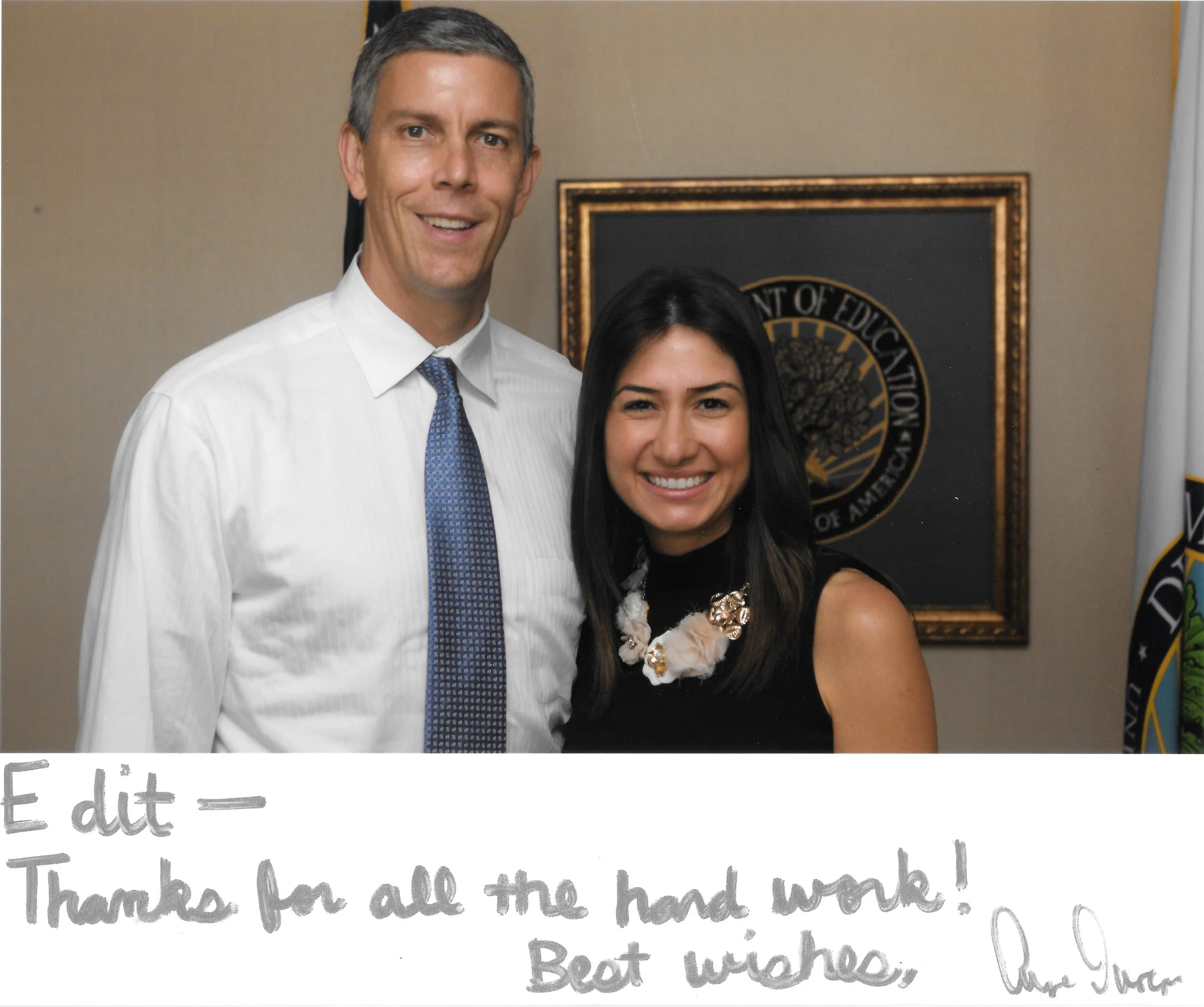Edit Khachatryan, PhD
I am a practitioner, a researcher, and an improver; I am a boundary-spanner.
I have been a proud educator for the last 16 years. I started my career as a high school social science teacher. Within just a few years, I was thrown into situations that required leading from the classroom, collaborating with colleagues to address shared problems of practice and facilitating teacher professional development. I enjoyed working with colleagues and growing together just as much as I loved teaching students in the classroom. The desire to have an impact outside of my classroom led me to seek formal and practical training in facilitating learning for adults. I left the classroom to engage in federal educational policy, working within the Obama administration at the U.S. Department of Education, mostly on teaching quality issues and supporting states that were recipients of Race to the Top funds. Then, through my doctorate at Stanford, I learned about and practiced facilitating teacher and leader professional development. Most recently at the Carnegie Foundation for the Advancement of Teaching, I supported organizations to utilize tools of improvement science to bring about system improvement.
Using improvement science as an approach to solving longstanding challenges educators face was a no-brainer for me. Improvement science offers a way – a process and a set of tools – for individuals to work together towards a shared aim and reach that aim. Improvement science doesn’t offer a solution, but an approach to identify and test potential solutions. In order to make improvements on any problem in education, I believe that we must invest in accessing and utilizing both the researcher and practitioner expertise that exists within our system. Finding – or designing – solutions rests within the knowledge, expertise, and experience of educators.
Taking a systems approach, my mission is to create lasting educational improvements by facilitating and strengthening collaborative learning among educators and stakeholders. In order to truly address educational disparities and ensure sustainable change for our most vulnerable students, we must support and strengthen collaborative problem solving and leadership development.
Why SOVOROOM?
sovoroom in the Armenian language means learning. I take pride in my Armenian-American identity and all the lessons I’ve learned as a bilingual immigrant child and adult. As I continue to learn personally and professionally, I take pleasure and pride in supporting learning among others, especially educators attempting to solve problems together and to improve schooling for themselves and their kids.
Stanford University Graduation, 2016
Education
PhD, Stanford University, 2016
MEd, UCLA Principal Leadership Institute, 2009
MEd, UCLA Teacher Education Program, 2005
BA, UCLA, 2003
Learn more on LinkedIn
U.S. Department of Education, 2010
Experience
American University School of Education
Carnegie Foundation for the Advancement of Teaching
Stanford Graduate School of Education
U.S. Department of Education
Glendale Unified School District
Los Angeles Unified School District




